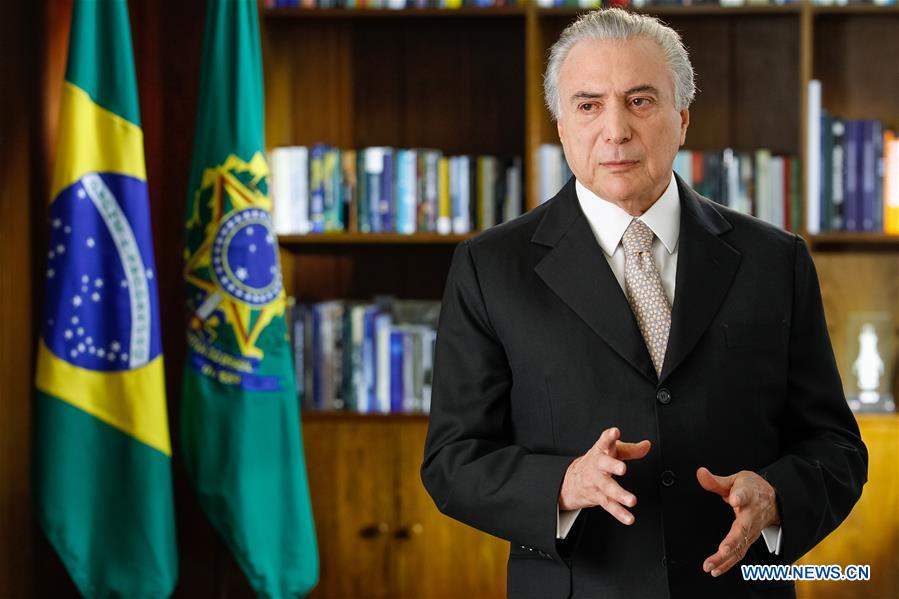Brazil wakes up with a new president. The conservative will govern Latin America's biggest economy through the end of 2018. CCTV correspondent reports on the mixed reactions to Michel Temer after the dramatic removal of the country's first female president, Dilma Rousseff.

Image provided by the Presidency of Brazil shows Brazilian President Michel Temer delivering a radio and television speech after he was sworn in as the new president of Brazil in Brasilia, capital of Brazil, on Aug. 31, 2016. (Xinhua/Beto Barata/Presidency of Brazil)
"Good evening, I assume the presidency of Brazil after a democratic and transparent decision from the National Congress," said Michel Temer.
This was the response to Michel Temer's first address to the nation. Protesters took to the streets across the country. In Sao Paulo, activists closed main roads and clashed with the police.
"Our dreams have been broken, But it is our democracy. Our vote means nothing," said protester.
Others celebrated the Senate's vote that sacked Rousseff and ended 13 years of Workers' Party rule. "We are very happy because it's the beginning of the end of an era-an era of corruption of lack of control," said celebrator.
Temer was sworn in despite being implicated in the massive corruption scandal at the state-run oil firm Petrobras. Rousseff, who chaired Petrobras from 2003 to 2010, was cleared of any corruption.
The Senate impeached her, instead, for breaking budget laws -- a move she says amounts to a legislative coup d'etat.
Political scientist Mauricio Santoro says the impeachment will not end the political crisis in Brazil. There has been regional fallout, too. Venezuela, Bolivia and Ecuador have recalled their ambassadors.
"Brazilian neighbors in Latin America are very concerned about what is going on in Brazil right now because many presidents in the region are afraid that they are going to be the victims of similar processes in their own countries. So that is why we are seeing the strong reaction from Ecuador, Bolivia, Venezuela and even Cuba," said Mauricio Santoro, political scientist, of Rio De Janeiro State Univ..
Temer is spending his first day as Brazil's president at the G20 summit in China. It will be a test, analysts say, for the new business-friendly leader to secure more foreign investment in Brazil-investments that could help pull this country out of its longest recession in history.















